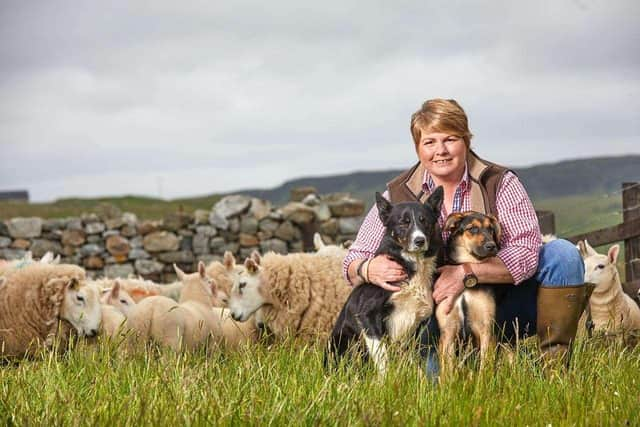Farming - The curious incident of the report published in the night-time


And while, on the surface, it only involved the publication of yet another report from one of the many groups set up to help guide future farm and rural policy, the back story might challenge the mind of Sherlock Holmes.
It concerns the workings of the Farming and Food Production Future Policy Group (FFP-FPG) – winner of the clumsiest title of the year award when it was set up in January 2019 by the then rural economy secretary, Fergus Ewing
Advertisement
Hide AdAdvertisement
Hide AdInitial hopes that the group would quickly draw up and deliver a document which focused on the “how bit” of delivering future policy were soon dashed as the document was pushed in a different direction, focusing instead on anodyne, politically correct language to deliver yet another aspirational yet essentially useless report destined to be parked on the Scottish Government’s library shelves.
So, two and a half years dragged on – and, crucially, with several members of the group still far from happy with its direction – there was more than a little outrage expressed when the document was published on the Scottish Government’s website.
And while the names of those sitting on the group were rather bluntly blanked out on the report’s pages– as if by a censor’s pen – they remained available on the website.
But the real question has to be why would anyone want the report to be published at this juncture, given this particular draft was, I believe, drawn up in November last year?
And although it was released under a request made under the Environmental Information Regulations (2004) rather than the Freedom of Information regulations – although such a request was also lodged – the question, once again, has to be - why?
NFU Scotland president, Martin Kennedy penned a blog to express his frustration at the publication, ststing that the voices of those with practical experience were being ignored, and highlighted that because of this the union couldn’t sign up to the report.
But Sutherland sheep farmer, Joyce Campbell - who is absolutely no stranger to the workings of Government committees, having sat on and chaired several working groups - went further and resigned from the group, stating that there was no way she wanted her name associated with the contents of the report.
Campbell said that the only way to get buy-in from producers on the ground was for it to be driven by a practical agenda – rather than by being ‘talked down to from above by those following a middle class hippy agenda’, as she put it.
Advertisement
Hide AdAdvertisement
Hide AdAnd while the reports of the five Farmer Led Climate Change Groups, drawn up earlier this year, may have superseded the work of the FFP-FPG in detailing an effective practical approach which would get the industry on-board, those in the know are getting antsy over the fact that the so called implementation board which is supposed to take this forward has yet to be set up – and the names of those sitting on the board have yet to be revealed.
So I found myself wondering that, with the foundations of the relationship with the new rural affairs cabinet secretary, Mairi Gougeon just being built, could it be that someone wanted to sabotage this by dropping a small incendiary device into the already smouldering embers of frustration within the industry over the slow pace of policy reform.
For, despite the odd bump in the road, the farming sector and the previous cab-sec, Fergus Ewing, enjoyed a fairly good working relationship - based on a joint desire to develop a practical system which would deliver for the environment and climate change while still retaining food production at the heart of the industry.
And, if continued, this approach is likely to secure a good news story for COP26 later this year.
But the tactic appears not to have been so well received by some of the senior civil servants overseeing policy development.
Alongside accusations that deliberate attempts are being made to block the progress in implementing initiatives designed by farmers for farmers - which, while liked by the industry and politicians, aren’t by officials - it can’t be forgotten that there are also pressure groups out there working to an anti-farming agenda.
So the curious incident of the report published in the night-time might be quite a three-pipe problem, even for Sherlock.
Comments
Want to join the conversation? Please or to comment on this article.